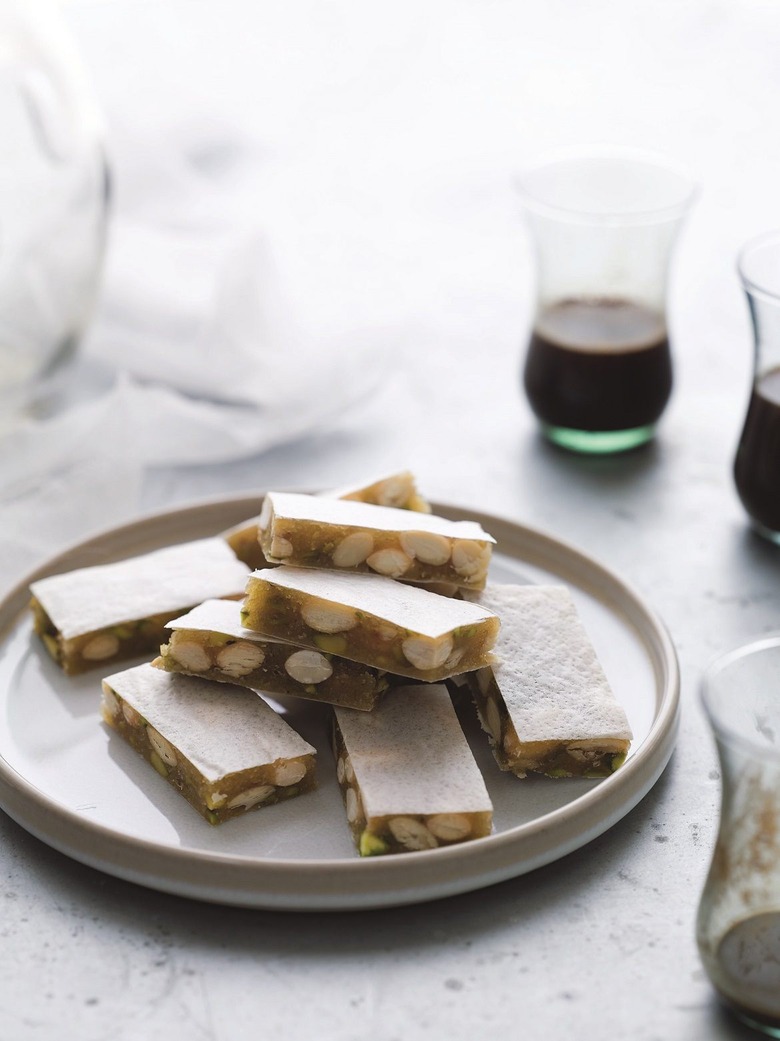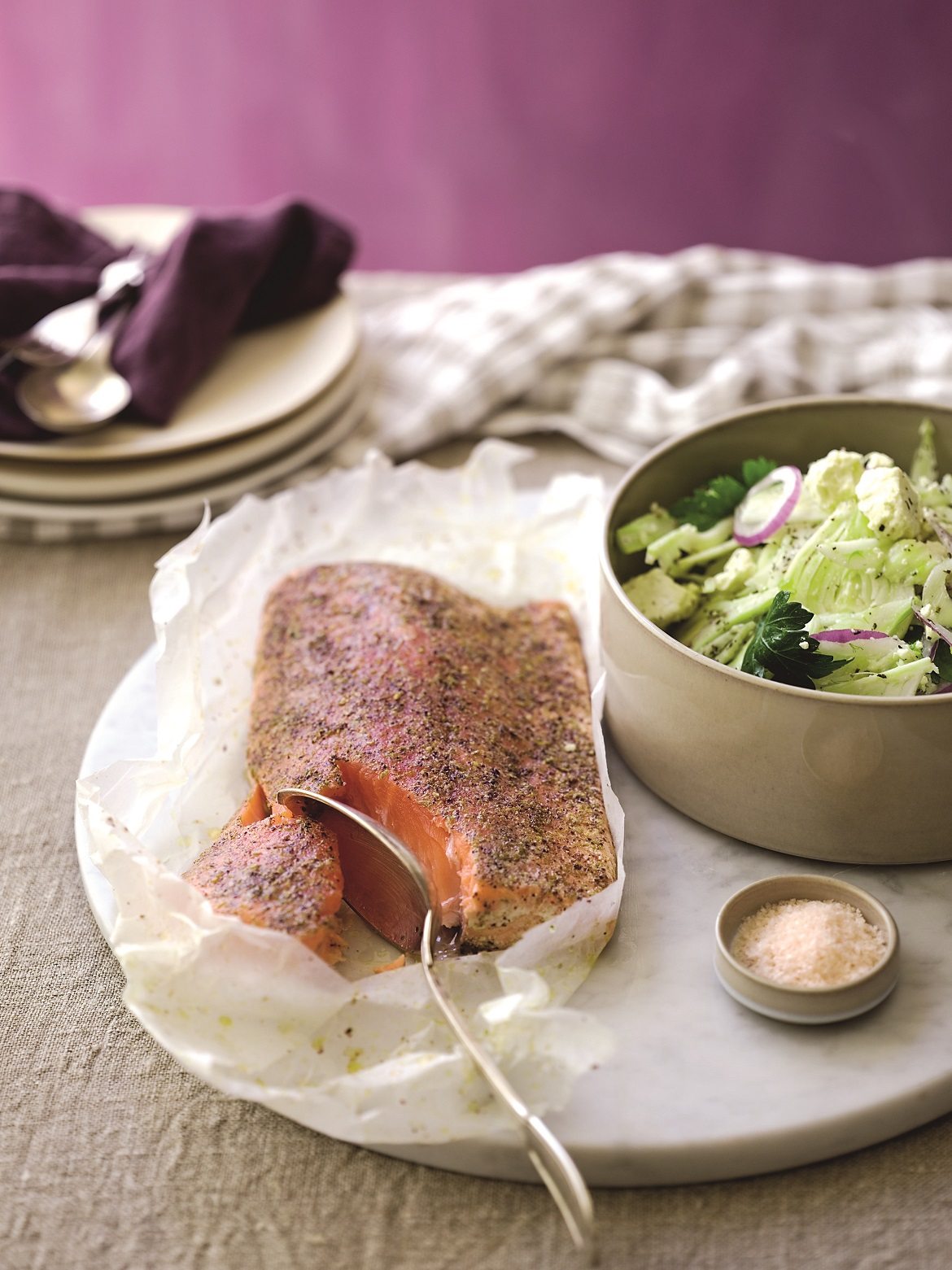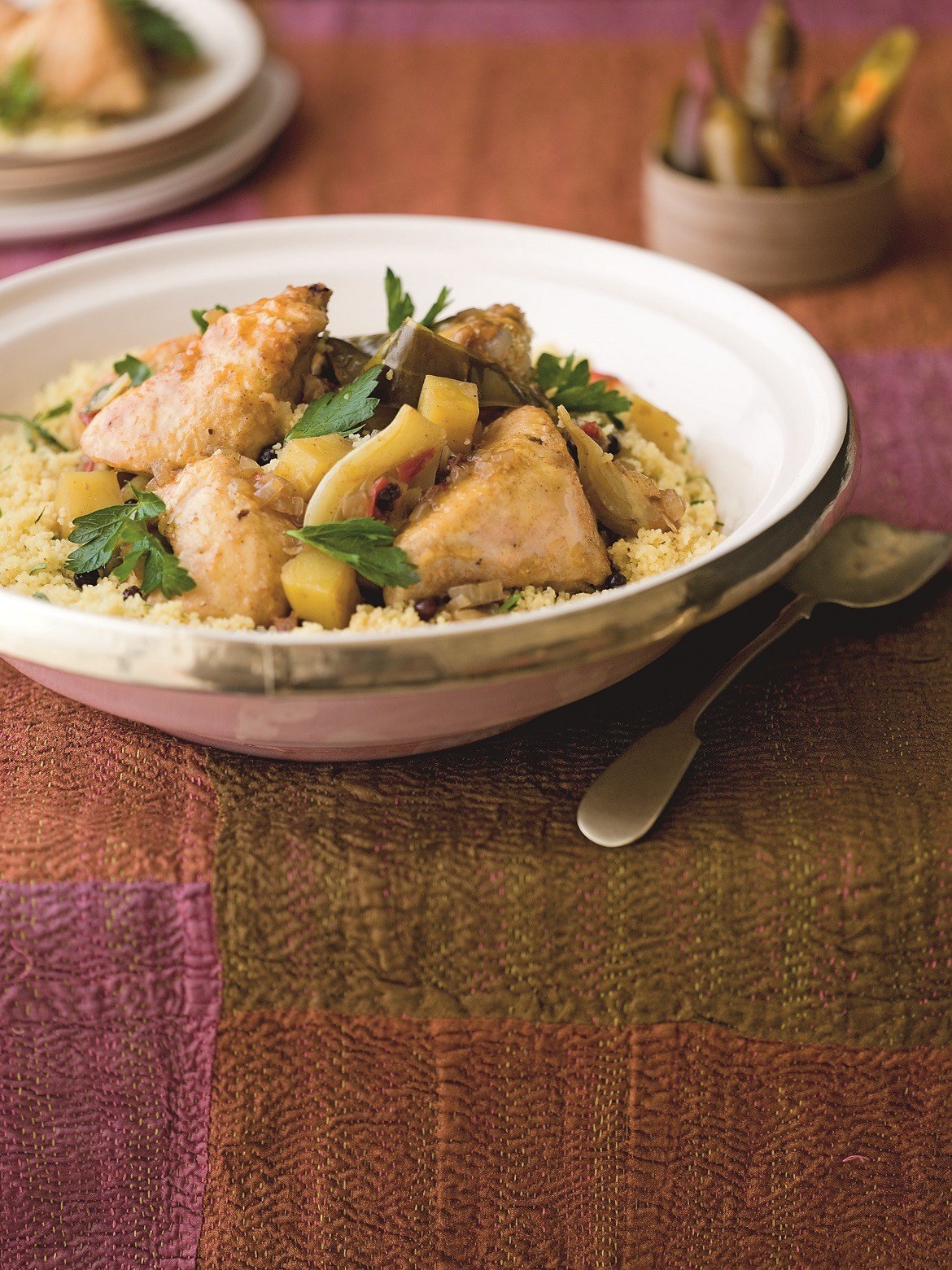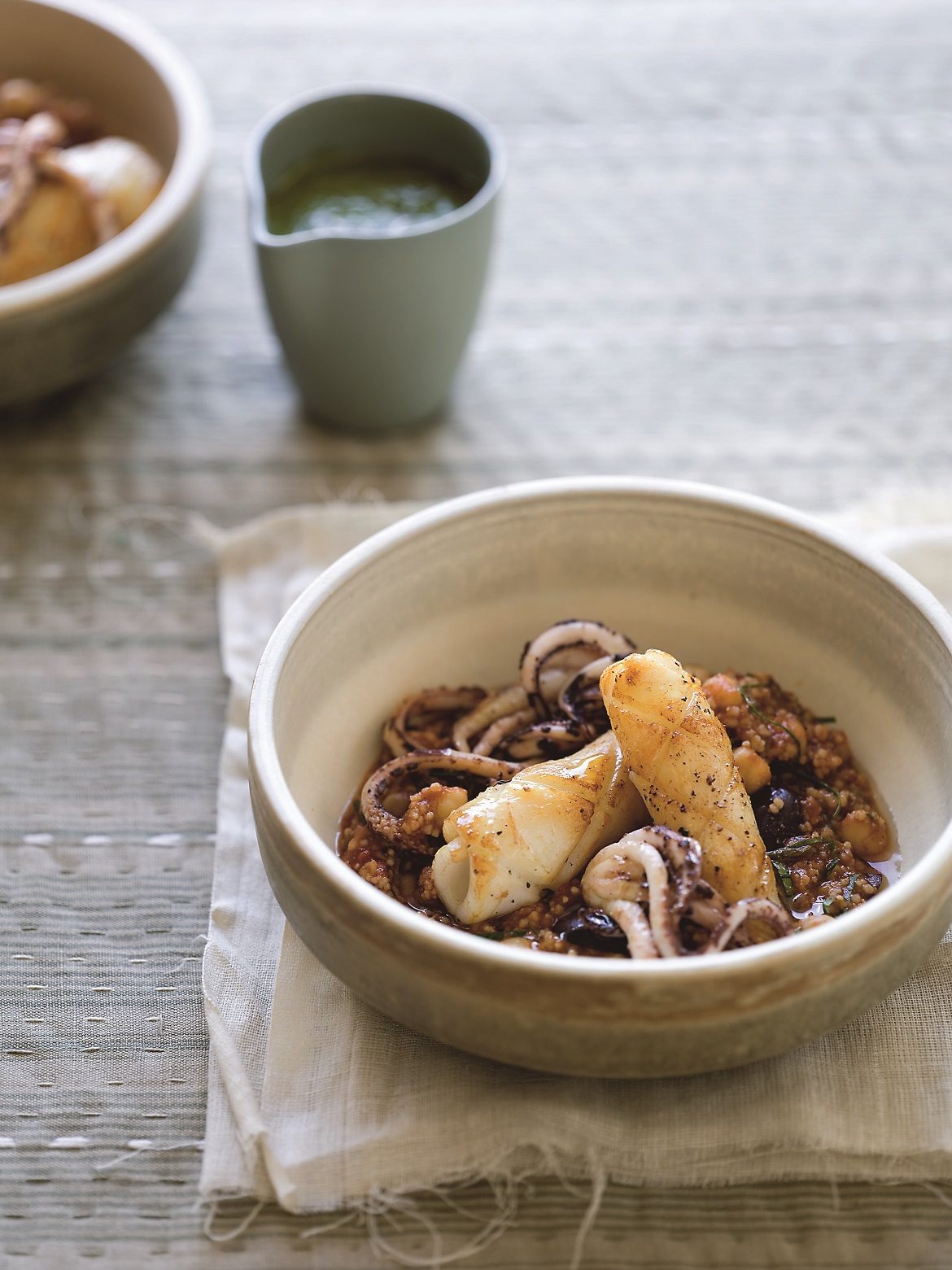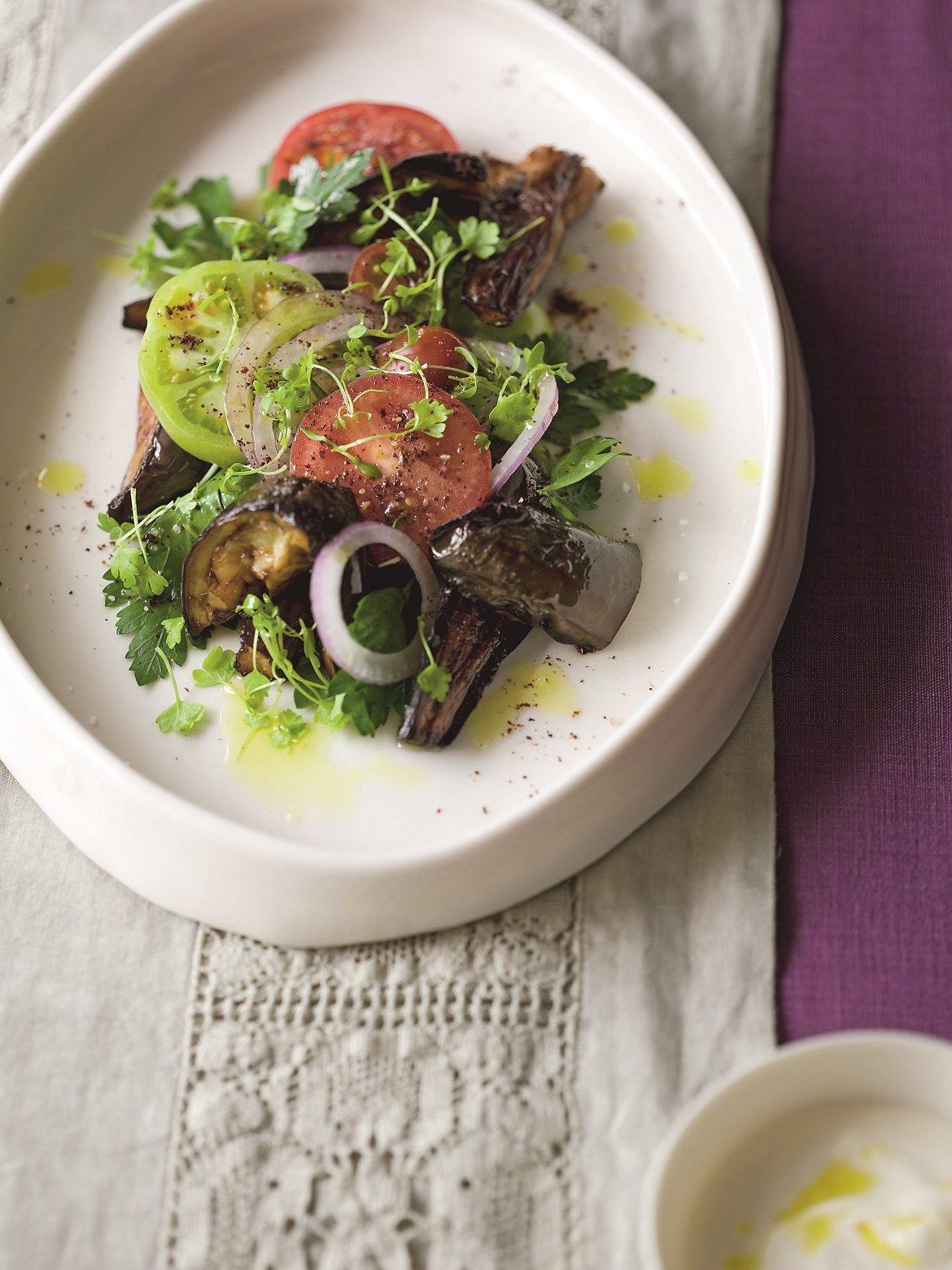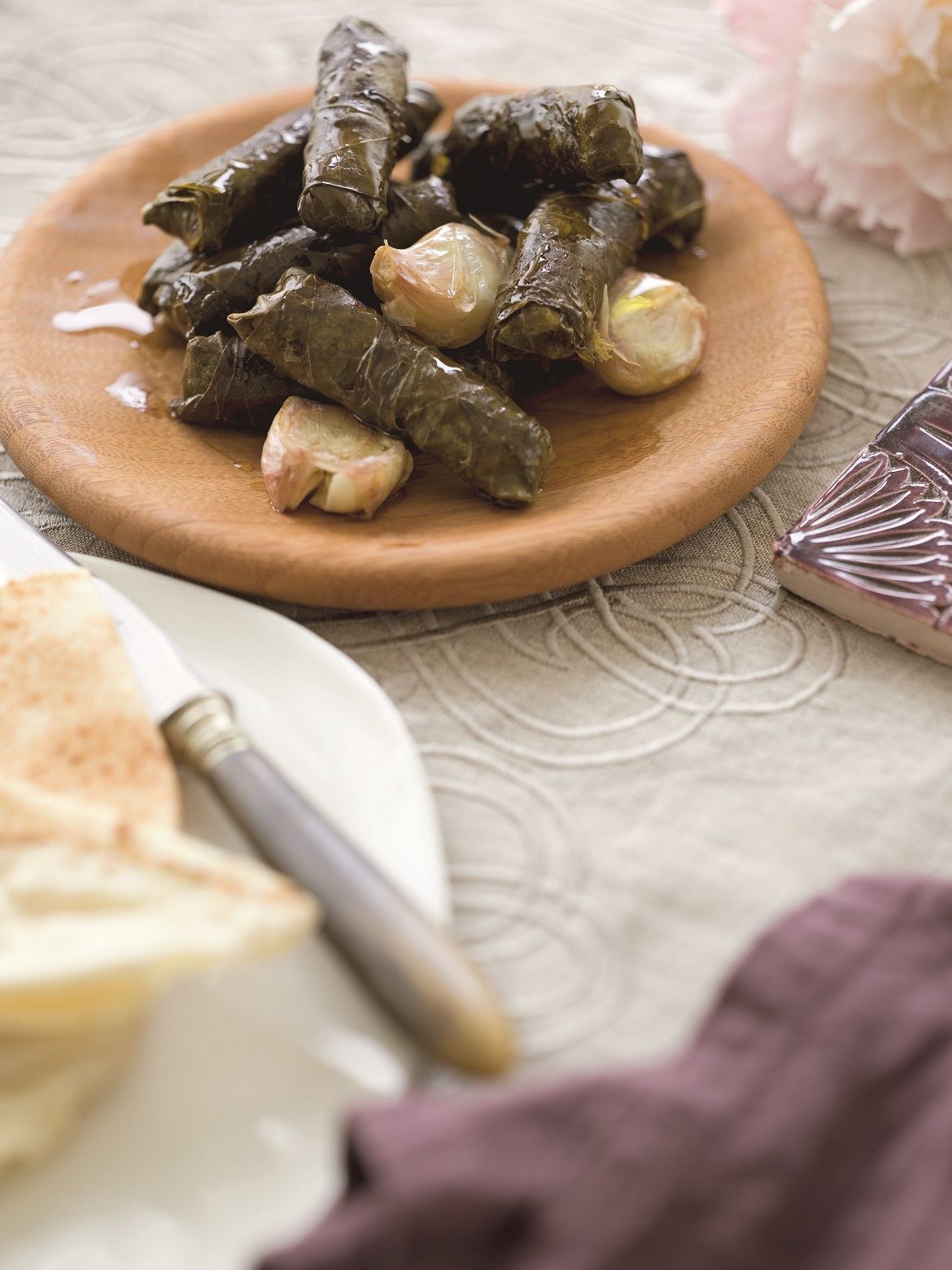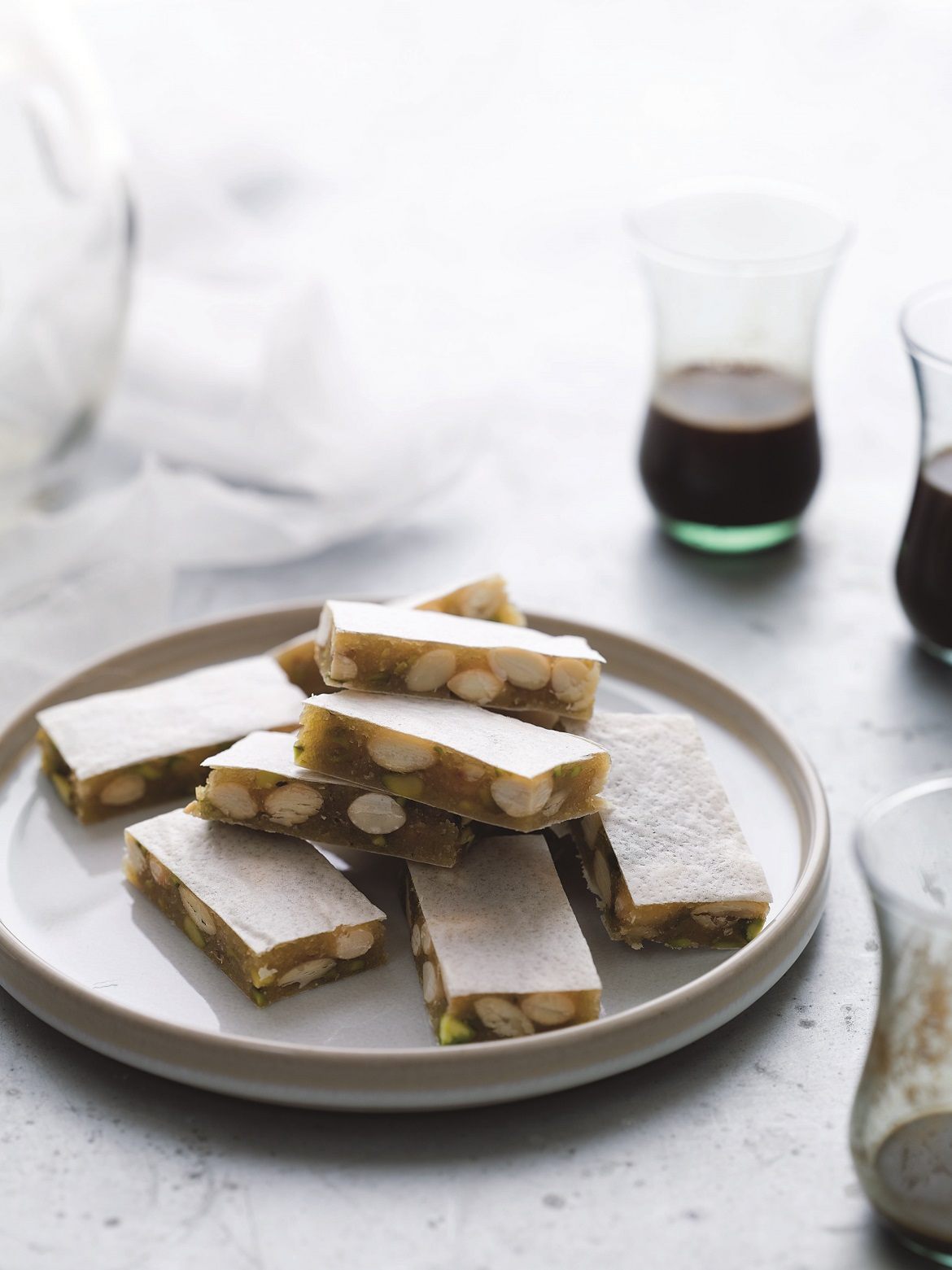'Moorish': A Feast Of Dishes From Mecca To Morocco
"We are shameless! We want to seduce you: to stimulate your imagination, invigorate your senses and tempt you to try the wonderful flavours of Moorish food."
So state the first lines of Moorish, a cookbook by Australian authors Greg and Lucy Malouf that is full of mouth-watering recipes inspired by North Africa, Spain, the Eastern Mediterranean, and the Middle East. "By Moorish, what we mean, loosely, is the cuisine that sprang up as a result of the Arabic occupation of North Africa in the eighth century."
In the introduction, one mission that is clearly stated is to help readers become comfortable with the new and unfamiliar ingredients used throughout Moorish cuisine. The aim is not to transform your larder into a complicated collection of spices that are used sporadically, but rather to open you kitchen to new possibilities. The authors want cooks to become familiar with traditional Moorish ingredients and use them in exciting ways that aren't necessarily traditional.
They encourage readers to use the many spice mixes to elevate a classic roast chicken, or simple risotto, to incorporate the exciting flavors of Moorish into their favorite family recipes. "To understand new ingredients and flavour combinations, all that is really required is a sense of adventure. ... Let your imagination run wild. ... Fry scaloppini in cumin butter for a change, or braise oxtail with cinnamon and preserved lemon... You will soon find that you are limited only by your imagination."
It is wonderful to open a cookbook and understand that it is to be used as a guide, and a way of learning new flavors. Though imagination and freedom are very much encouraged, the authors also suggest becoming comfortable with the recipes and the intended flavors and textures before adding your own flair to them.
Recipes featured in the book include:
— Atlantic Salmon Grilled With Fennel, Lime and Sumac
— Chicken Tagine With Green Herb Couscous
— Couscous Stew With Grilled Calamari and Zhoug
— Eggplant and Tomato Salad With Tahini–Yoghurt Dressing
— May's Stuffed Vine Leaves With Mint Labne
To purchase Moorish, click here
The Daily Meal: What is your philosophy of cooking (and/or eating)?
Greg and Lucy Malouf: For me, food — preparing, cooking and eating it — has always been about generosity, sharing, and family values. Growing up in a Lebanese-Australian family, these principles were drummed into me and my brothers from early childhood, and to this day I think I am most likely to express hospitality, friendship, and love in the kitchen and at the dining table. It's the Middle Eastern way!
How did it inspire the recipes you chose to include in this book?
The recipes in Moorish — and in all my books — are merely a natural extension of my approach to cooking and to eating. That's to say, they are rooted in the dishes of my childhood, are further inspired by the Middle Eastern countries I've visited, and are expressed in a fresh and contemporary way. Put simply, this is absolutely the way I cook and eat myself.
What is your favorite recipe in the book and why?
If I have to pick one, then my mother May's stuffed vine leaves with mint labne has always been a family favourite and is one of my anytime-of-the-day, any-day-of-the-week meals. For me it epitomises everything wonderful about Middle Eastern home cooking: It's simple to prepare, it's made from humble ingredients and it's clever — the components for two separate dishes are cooked together in one large pot. And of course it's a dish to share from the centre of the table.
What are some of the foods you can't live without?
Like many Lebanese I have a sour palate, so yoghurt would have to be up at the top of the list, along with lemons. And then there are olives, stuffed vine leaves, and baby zucchini, fresh Arabic bread — and a paste of za'atar and sumac in olive oil for spreading on the bread. Finally, I don't think I can contemplate life without watermelon!
Would you rather dine out or cook at home?
I do travel a fair bit for work, and then I always enjoy eating out in restaurants as I love to see what chefs in other parts of the world are up to — although, that being said, some of the best food I've eaten has been in people's home kitchens. (Certainly in Middle Eastern countries it is in the home, and not in a restaurant, that you really learn about local cuisine.) But when it comes down to it, there's no place I'd rather be than in the kitchen, whether at home or work. Cooking at home allows me to feed myself with the simple things I enjoy and when cooking for others; it gives me the chance to share the food I love. In truth, there's nothing I enjoy more than entertaining Middle Eastern-style: I'll spatchcock some quail, or a plump chicken, and roast them with ras al hanout spices, or for something a bit fancier, I'll prepare Atlantic salmon with a fennel, lime, and sumac spice rub. Both dishes are delicious with a roasted walnut tabbouleh... or some creamed feta spinach... or a Greek-style salad crammed with wild greens, feta, and olives. For dessert, though, there's really nothing better than chilled watermelon slices with crumbled pistachio halva.
What is your favorite go-to meal or drink?
Kibbeh nayee (a sort of lamb steak tartare) is my absolute go-to dish. It should be served with all the proper accompaniments: mint leaves, olive oil, white onions, and fresh-from-the-oven Arabic bread. I could easily wash that down with the traditional accompanying drink for mezze, which is Arak. Alternatively an ice-cold Almaza beer or a fruity riesling from Australia would do the job nicely.
How do you hope readers will use this book, what do you hope they take away?
Although Westerners are far more familiar with the language of Middle Eastern food than they were say, ten years ago, I find that there's still a layer of "mystique" to break through. My great hope is that, one day, Westerners will be as utterly comfortable with Middle Eastern food as they are with Italian, or French, or Asian food. And I'd really like for people to understand that it's so much more than soggy tabbouleh and greasy falafel! In Moorish, I am trying to share some of the building blocks of Middle Eastern cooking — spice mixes and pastes and the like — and hope that they'll use them as a bit of a jumping-off point for their daily cooking at home. In my view, much of the very best cooking is not about being fancy and complicated, it's about adding twists of flavour and texture to transform a dish into something exciting.
Is there anything else you'd like to share?
When I wrote my first cookbook, 18 years ago, Middle Eastern ingredients were hard to track down, but nowadays flower waters, preserved lemons, harissa, and spice blends are readily available in most suburban supermarkets! And many of us have access to markets and farm shops for terrific quality, locally grown produce, which is another bedrock of Middle Eastern home cooking. So nearly all the ingredients you need to try out the dishes in Moorish are right there for the taking, and I dearly hope that readers will be inspired to give some of the recipes a go.
